 Midwestern Gothic staffer Audrey Meyers talked with author Bill Beverly about his novel Dodgers, the inescapability of weather, dreaming of L.A., and more.
Midwestern Gothic staffer Audrey Meyers talked with author Bill Beverly about his novel Dodgers, the inescapability of weather, dreaming of L.A., and more.
**
Audrey Meyers: What’s your connection to the Midwest?
Bill Beverly: Born and bred in Kalamazoo out of Illinois and Michigan parents. Grew up listening to Tom Hemingway calling Michigan football games. College in Ohio, couple years in Minnesota and Wisconsin and Iowa. Likes pie and animals and driving a car.
AM: How has the Midwest influenced your writing?
BB: Childhood shapes everyone’s writing, and mine was a Midwestern childhood. The weather and the light, the towns and the orchards, the big lake – the Midwest has its luxuries. The long evenings at the western end of the Eastern time zone.
AM: What about your move from Michigan to Florida sticks with you most? How did you adjust and what (besides weather) were the biggest differences between the two places?
BB: Well, there is no besides weather. There is no way we can disregard weather’s difference. Despite every effort to cement-mixer us together into one grand undifferentiated CNN-loving mass, the difference weather makes is intractable. It refuses to stay within parentheses. Minnesotans are never happier than when their bloody-hearted winter bravery is in high season. Shoveling out their cars brings them close to God. And the subtropical is an entirely different mode, even though you can follow I-75 all the way down from Detroit and never even have to take out a map. In the subtropics, the seasons are flattened out. It changes but not much. This affects everything, from architecture to the way you eat to your relationship with the bugs and the grass and the sky.
Florida is a strange case. It is lumped with the South, for cartographically obvious reasons. And north Florida is really South Georgia or east Alabama. But much of Florida is still being overrun by settlers, constantly. So tropically fecund is the land and water and even the air that the notions of frontier and of wilderness are never entirely obsolete there. Nature will grow on anything there. It will grow in your shirt if you leave it outside all weekend. If everybody just let Florida alone for about twenty years, there would be dinosaurs again.
AM: Since you grew up in the Midwest, what drew your interest to criminals in L.A.?
BB: Oh, the movies. In the movies, everyone in L.A. is a criminal.
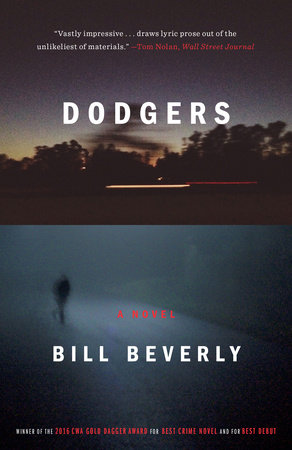
AM: What inspired you to write about L.A. gangs in your latest novel Dodgers?
BB: It does have a gang in it. But Dodgers isn’t really a gang novel. The novel follows one character, a 15-year-old kid named East. He is part of a gang, but the gang is circumstantial to his story. The story is about him.
I don’t mean these last two replies to be flip. I loved L.A. from the time I got a first-grader’s idea of it. Who wouldn’t. It even sounds cool – Los Angeles. I grew up on Chinatown and Nathanael West and The Last Days of the Late, Great State of California and Blade Runner. Some kids dream of New York or Paris or Dallas, Texas. I dreamed of L.A.
AM: What kind of research was required in order to write Dodgers? How do you intertwine facts and fiction?
BB: As a graduate student at the University of Florida, I wrote a book called On the Lam. It’s about fugitive stories and how we tell them. Part of its research involved reading dozens and dozens of fugitive slave narratives. Some are bare-bones; some are highly detailed. And the similar stories they tell form, over time, like weight on wood, an impression. A consensus.
Those stories confirmed again and again that the landscape was dangerous. Everyday life was dangerous, but the land – which white Americans look at as a sort of birthright, a traveler’s medium – was a space where black Americans were visible, vulnerable. The landscape and the laws and the local manners were all mechanisms for controlling them.
A story that evokes the contemporary remnants of that paranoia is Richard Price’s Clockers, right at the end, where Strike leaves New Jersey into an America that is – what? The book ends before we find out. And that mystery is one of the germs of Dodgers.
AM: Do you consider yourself a narrative journalist? If not, how do you define yourself as a writer?
BB: No. I don’t consider myself a journalist in any way. I was trained, not altogether successfully, as a journalist, but I did not have the discipline of attention that a young journalist needs. I would cover a meeting and miss the point. I was too interested in various and sundry peripheral details. I was not long for that world.
There’s something nice about this sort of failure. Things are always surprising me, long after everyone else has already taken cover.
It’s early to define myself as a writer. Ask me when I’m dead.
AM: Since you’ve written other stories about criminals, what is distinctive about Dodgers?
BB: Dodgers is lucky to find an intersection between a number of American stories – it is a road story, a lam story, a story about family and about coming of age. I didn’t plan that intersection, but I am fortunate to have found it.
AM: What do you hope Dodgers accomplishes as a novel?
BB: I was taught to believe in my characters and give them moments of intelligence, courage, and grace. This is something a young writer is taught, but it’s also a spiritual task – to watch others with empathy, with compassion, with hope.
AM: Do you hope Dodgers will have an impact on the current controversies between African-American men and police officers?
BB: No. I think a novel is at best a very indirect way to make such an impact. Of course one would like to see this violence ease. But I don’t think fiction accomplishes this. I think building respect and community is far more direct.
AM: I think your choice to bring criminals from a west-coast city to Wisconsin is fascinating and thought-provoking. What writing techniques did you implement when personifying the characters that endure this cross-country journey?
BB: Brevity. Dialogue. Having one character through whom the narrator can see and speak, and letting that character be sharply observant.
AM: Since Dodgers is a piece of fiction about plausible circumstances, how do you make the unreal, real? How do you convince your readers to believe in your narrative?
BB: In any fiction, you have to build from a first brick. That first brick is a perception that is both surprising and obviously right.
AM: In the future, do you think you’ll continue writing within the crime novel genre? What’s next for you?
BB: Yes. But most novels are crime novels, aren’t they?
I don’t work fast. I have a day job and it’s a busy one. There are a couple of pots on the burners, and we’ll see which one steams first.
**
Bill Beverly grew up in Kalamazoo, Michigan, and studied writing at Oberlin College and the University of Florida. He is the author of On The Lam: Narrative of Flight in J. Edgar Hoover’s America and the novel Dodgers, winner of the 2016 Crime Writers Association Golden Dagger and John Creasey Dagger awards. He lives in Hyattsville, Maryland.
June 15th, 2017 |
 Midwestern Gothic staffer Megan Valley talked with poet Sjohnna McCray about his collection Rapture, dreaming of being a dance DJ, being raised by a Vietnam vet, and more.
Midwestern Gothic staffer Megan Valley talked with poet Sjohnna McCray about his collection Rapture, dreaming of being a dance DJ, being raised by a Vietnam vet, and more.
**
Megan Valley: What’s your connection to the Midwest?
Sjohnna McCray: I’m originally from Cincinnati, Ohio. It’s not a big city and it’s not a small town. I grew up in different working class neighborhoods: Colerain Township, Evanston, Pleasant Ridge, and Walnut Hills. I remember things like pawn shops, chicken joints, Oktoberfest, bootleg cabs, The Cincinnati Kool Jazz Festival, and local chili parlors. Cincinnati was diverse enough that when I went to college in Appalachia (Ohio University in Athens, Ohio) that I felt “urban.”
MV: Your debut poetry collection, Rapture, was selected by Tracy K. Smith as the winner of the Walt Whitman Award of the Academy of American Poets. What part of the collection are you most proud of?
SM: I’m certainly not the first, but I like the work being done in the latter half of the book. It tries to portray some intimate and middle-age aspects of being gay. More interior and less physical. Although, there is a poem dedicated to glory holes comparing a man climaxing to Athena springing from Zeus’ head. So, there’s that…
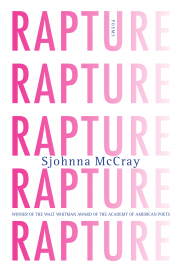
MV: What authors have been the most influential to your own writing?
SM: There are so many! It changes from week to week. I think of the poets that were given to me by professors when I was an undergrad. I would cling to these poets and carry them in my bag or check out all of their books from the library. I’ll just name a few: James Wright, Robert Kinsley, Sharon Olds, Robert Hass, and Louise Gluck. I loved how cerebrally easy Lucille Clifton’s poem read but how each word and line break was doing maximum work. One could probably say my entire early writing life was influenced by Robert Hayden’s “Those Winter Sundays”. Also, the poet Tom Andrews introduced me to Rita Dove. I remember going to the Little Professor Bookstore and standing in the aisles and reading “Grace Notes”. I probably couldn’t afford it so I would come back every other day to read little bits of it.
MV: In Rapture, you explore your father’s experiences in Vietnam. How does that backdrop work with how you bluntly present human bodies in all their imperfection?
SM: Blunt is a good word. What I know of war is filtered through my father’s experience — through his body. He would probably say, “John, it was so f—ked up over there.” And yet, he met my mother and probably had the best sex of his life. There were so many physical and internal conflicts. He was drafted and served his country but when he came home Vietnam Vets were not considered heroes. He told me of instances where soldiers were spit on. The war changed the way he related to the world. Also, he was black and there were still civil rights battles. I suppose being raised by such a damaged person made me see things in a more lyrical way. It’s like being raised by a tragedian.
MV: What would you be doing if you weren’t a writer?
SM: I actually love teaching and creating safe spaces for dialogue. It’s a skill to create an atmosphere where students feel comfortable enough to share their thoughts and opinions. Listening to students, I think, keeps me young. I love when they begin to discover ideas for themselves. The “ah-hah” moments in class are golden.
However, in my secret heart, I’d love to be a globetrotting, electronica, dance DJ. The kind who spins records with no shirt on, a big gold chain, a Kangol hat, and Adidas track pants! I’m working on my Brawny paper towel, hipster, lumberjack beard.
MV: While your poems stand on their own, the way they’re presented in Rapture follows a chronological narrative. Was that always the intention when you began working on the collection?
SM: No. The book took several different shapes before it settled into a more chronological narrative. I was shortsighted and wanted to be dramatically lyrical and arrange the book like a mix tape moving from one poem to another based on mood. Finally, I had a moment of clarity and my revision brain told me what to do.
MV: In your essay “The Marble Queens,” you recount your time as an undergraduate when your professor, Henri Cole, said your poem seemed to be the work of a “flowery, pretentious decorator.” Now, with a highly regarded collection under your belt, how do you hope your readers characterize you?
SM: Recently, I was talking to a friend of mine. I told her, I felt like we were living in a highly charged political time and writers were doing some serious work and heavy lifting. I didn’t feel like one of these poets. My poetry is kind of like meatloaf or comfort food. I hope my readers feel the way I have always felt reading poetry; it’s comforting to know another human being is out there being empathetic to the world. Documenting existence. Being thoughtful.
MV: What’s next for you?
SM: I’m finding that tackling a second book of poems may be more challenging than the first volume. I have a book of memoir-like essays that I need to finish. It talks about growing up with a severely schizophrenic mother and being closeted and gay in the Midwest.
**
Sjohnna McCray was born and raised in Cincinnati, Ohio. He was educated at Ohio University and received his MFA from the University of Virginia where he was a Hoyns Fellow. He has a master’s degree in English Education from Teachers College, Columbia University. McCray was the winner of the 2015 Walt Whitman Award from the Academy of American Poets. He lives and teaches in Savannah, Georgia.
June 8th, 2017 |
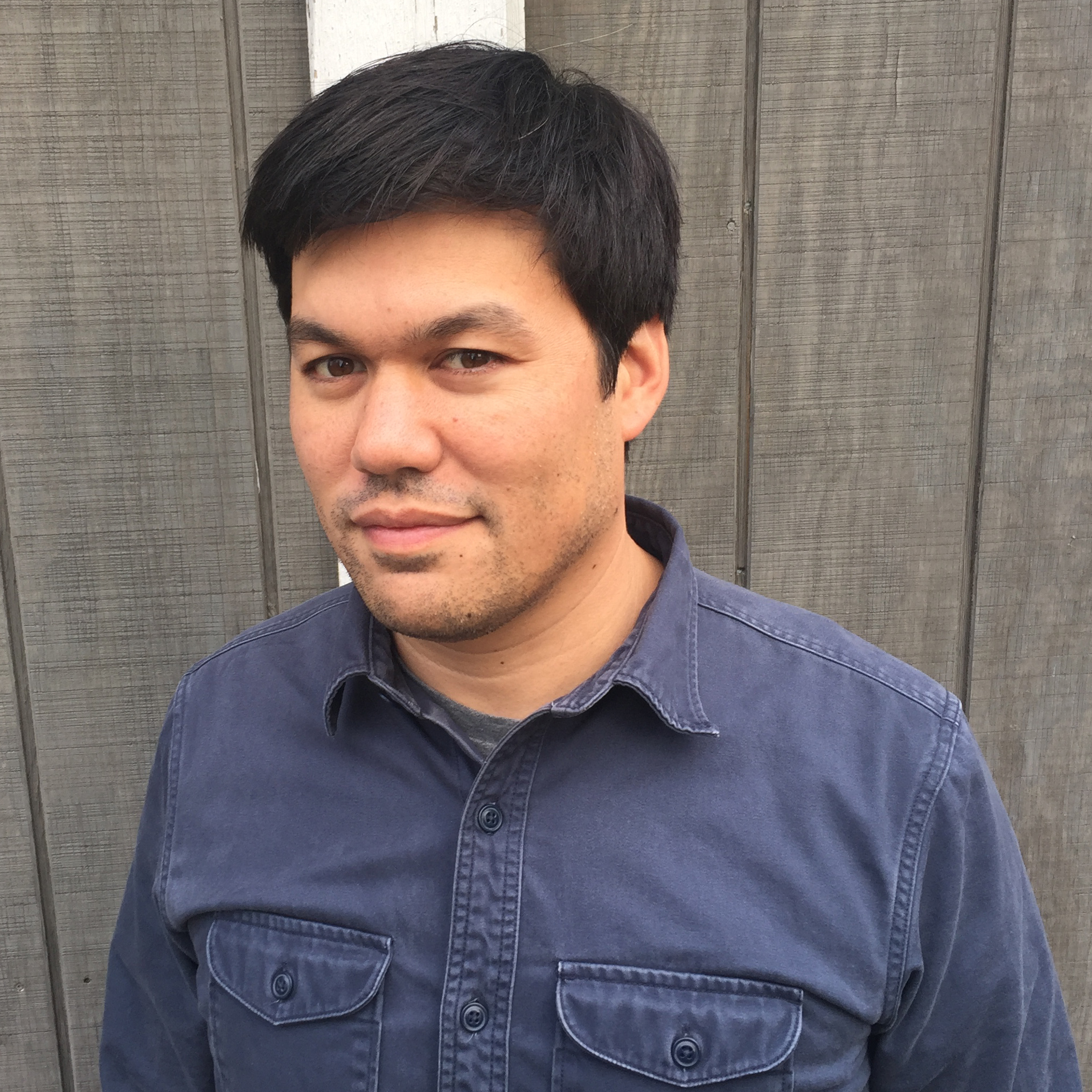 Make sure to check out another interview with Keith Lesmeister, now up on Michigan Quarterly Review‘s blog site! Keith discusses We Could’ve Been Happy Here, emotional connections in literary fiction, sharing pain with characters and more.
Make sure to check out another interview with Keith Lesmeister, now up on Michigan Quarterly Review‘s blog site! Keith discusses We Could’ve Been Happy Here, emotional connections in literary fiction, sharing pain with characters and more. 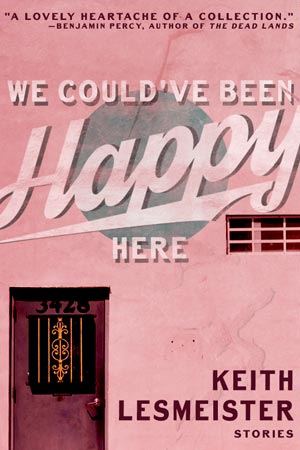
Here’s a quick excerpt from the interview:
“Getting to know a character is much like getting to know a co-worker or friend… I spent a lot of time talking to my characters, asking them questions, figuring out their wants, desires, insecurities, vulnerabilities, fears, loves, and once we shared our secrets with each other, I could hear them talking to me.” – Keith Lesmeister on finding a character’s voice
Read the full interview here.
June 7th, 2017 |
 Midwestern Gothic staffer Kristina Perkins talked with author Thomas Mullen about his novel Darktown, crime in history and present time, the choices a writer must make, and more.
Midwestern Gothic staffer Kristina Perkins talked with author Thomas Mullen about his novel Darktown, crime in history and present time, the choices a writer must make, and more.
**
Kristina Perkins: What is your connection to the Midwest?
Thomas Mullen: I went to Oberlin College for four wonderful years. Like a lot of colleges, it could feel very set apart from the town, and I imagine a lot of students graduate from the school with little perspective on the town itself. I had a different experience; my work-study job for all four years was at a second-hand clothing store, Senior Thrift, run by the local senior citizens’ center (the school paid students to work some jobs in the community). Senior Thrift received donations of old clothes, often from folks downsizing from a home as they prepared to move into small apartments in assisted living facilities or nursing homes. So not only did I work with a lot of senior citizens from the town (black and white, poor and well-off), some of the seniors and I often went to people’s houses to pick up stacks of clothes, furniture, and various knick-knacks. I saw inside dozens and dozens of houses all over town, met a lot of people, heard a lot of stories. I learned that retired folks really, really like to gossip. And that out-of-style plaid pants and blazers from the ’70s were really quite amazing to wear again in the ’90s.
And my wife was raised outside Chicago; she has a deep fondness for the area, and we travel back when we can.
I set my second novel, The Many Deaths of the Firefly Brothers, in a fictional Ohio city; it’s about a pair of Depression-era bank robbers. The Midwest was particularly fertile ground for such thieves, like John Dillinger and Pretty Boy Floyd, so in a lot of ways that book was an homage to my time in Ohio.
KP: You were born in Rhode Island, attended college in Ohio, and currently live in Atlanta, Georgia. How has your understanding of place — as well as the memories, people, and values tied to place — influenced your approach to the settings in your novels?
TM: I love to travel. This might partly be due to the fact that I’d never flown ’til age 17 and never left New England and New York ’til age 17 — I desperately wanted to get out and see more of the country, the world. I’ve now lived in several places, and yes, I certainly pick up on regional differences, cultural markers, political opinions that may differ from place to place. On the one hand, I think your average RI town and OH town are more alike than different. On the other hand, part of the fun of setting a novel in a certain place is fully building its world, and a strong sense of place is so important. What jobs do people there work? Where do they go to church, if they do go at all? What are their biggest hopes and fears and obstacles? Particularly with fiction set in the past, I ask myself these questions constantly.
KP: Your newest novel, Darktown, blurs the lines between traditional genres, combining elements of crime fiction and historical fiction as it follows the narratives of Atlanta’s first black police officers. What initially drew you to this particular blend of genres?
TM: There was never a conscious attempt to combine genres. This book came about when I heard the true story of Atlanta’s first black cops in 1948 and all the ridiculous Jim Crow restrictions they had to work under, and I wanted to write about it. Because they’re cops, it’s a crime story, and because it’s the past, it’s historical, but I didn’t come at it from that angle. I just loved the story and went from there. (And I’d argue that historical fiction isn’t really a genre, it’s more of a setting; it’s like calling novels written in second-person a genre, or books with multiple protagonists a genre… but that’s a digression!)
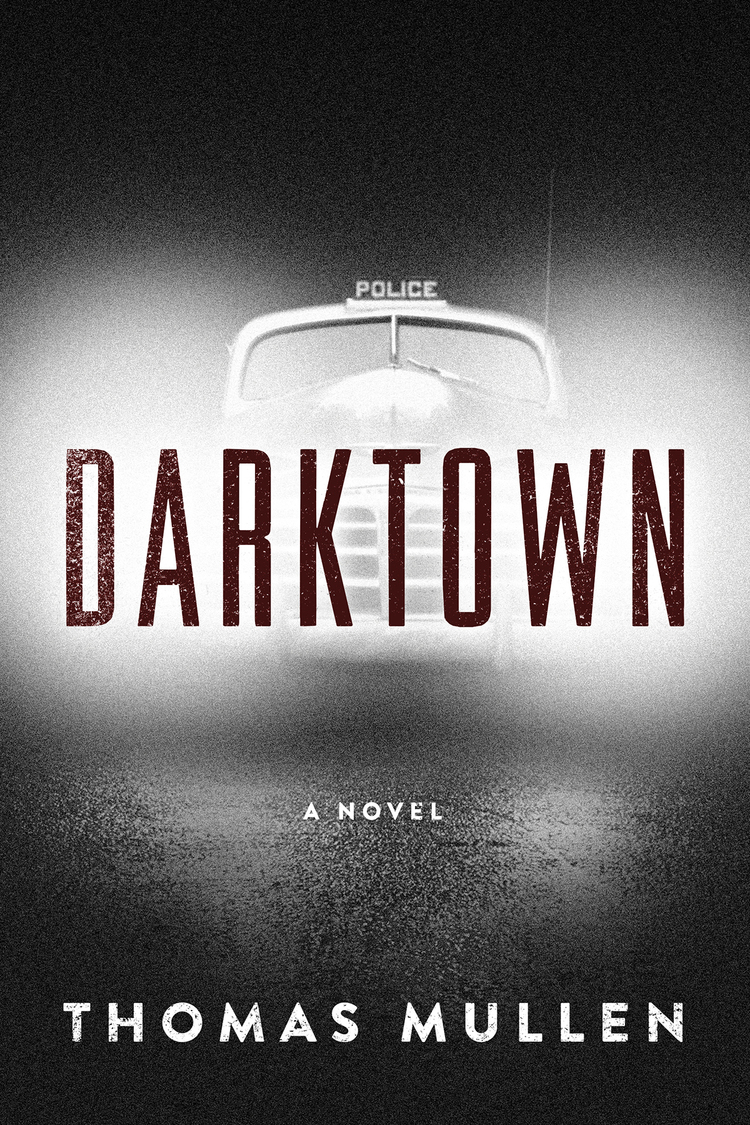
KP: In a previous interview with Publishers Weekly, you mentioned that you considered approaching Darktown through nonfiction. Why, ultimately, did you choose to fictionalize this story? And, when planning the novel, how did you navigate the relationship between fact and fiction?
TM: I considered it as nonfiction, or even a magazine story, mainly because I was at a point in my career where I felt like trying something new. I’d just written a long-form true crime story that had gotten some attention, so I wondered if I should try a true crime book, but ultimately I decided against it. I’m a fiction writer. The two are very different types of writing, and, although I do a huge amount of research, the amount of research required for a nonfiction history book would dwarf that. I didn’t want to live in libraries for years. I enjoy research, but as a means to an end. I would always rather be writing.
KP: Darktown is your fourth published novel. How do you feel you’ve grown as a writer between and among books? What did you find most surprising — or, perhaps, most challenging — about writing and publishing Darktown?
TM: I like to think that I’m better at it, that I’ve learned from certain mistakes, failed manuscripts, bad ideas, poor execution, etc. I think I have a better sense earlier on as to whether an idea will work or whether I need to tinker with it more. And I think I have a better sense of the marketing of fiction, which can sound mercenary but is, in fact, quite important if you want to keep writing books. My first three books were very different from each other — this was a conscious decision, as I love a lot of writers who change every time (Michael Chabon, Jonathan Lethem, Margaret Atwood, Colson Whitehead). But that can make it very difficult for people to know what box to put you in, who to aim your work at, etc. With Darktown and the idea to write a series of crime novels set in Atlanta during the Civil Rights era, I realized it would be easier for people to understand who I was and what I was doing: oh yeah, he’s the guy who writes those literary crime novels about the South. I can always branch out from there, but I think people need a baseline understanding of what makes you unique.
KP: The story of Darktown is notable for its timeliness: much of this history of systemic police racism is reflected within today’s Black Lives Matter movement. How has writing Darktown influenced your understanding of current tensions between race, mass incarceration, and policing — if at all?
TM: These are huge issues that continue to shape politics and policy in this country. Part of why I find 1948 fascinating as a setting, and the idea of a series so fun, is that it’s just before the first victories of the Civil Rights movement. But those victories also led to a massive white backlash, white flight, the new conservative movement with anti-tax and anti-urban policy, and so many other things that would shape the world of the 1980s and 1990s, when I grew up. And it informs much of what we’re seeing today, with another white backlash and the reshaping of a Republican party that was last reshaped in the late ’60s, partly in reaction to the Civil Rights movement. So in drilling down into 1948 and the following 15-20 years, I can better understand the world I inherited and the one we’re all dealing with today.
KP: You’ve spoken about your plans to expand Darktown into a series of books; however, you’ve also mentioned that you had previously been weary of literary series. What changed your mind?
TM: I don’t think I was weary of them, I just hadn’t really thought about them much. But for the reasons I just mentioned, a series here makes a lot of sense. There’s so much I’d like to explore, and I think it will be fascinating to trace the changes in Atlanta—and America—that come with 1954’s Brown v. Board of Education and the backlash to it, that come with the return to Atlanta of Martin Luther King Jr. 1960, that come with the big generational disagreements among activists in the early 1960s. There’s a lot to work with, and rather than feeling the need to write an overstuffed 900-page doorstop with too many characters and subplots, I can try to give each story the attention it deserves.
KP: You announced that Darktown will be produced by Sony Pictures Television as a TV series! How involved will you be in this process? What do you think may be the biggest challenge in transferring this story to the screen?
TM: It’s an ongoing process so a lot of the specifics remain to be seen, but I’m certainly thrilled and looking forward to it. I think that a lot of the better TV shows today (many of which have novelists as show runners, from True Detective to Game of Thrones to The Americans) borrow novelistic storytelling in exciting ways, and can even tell more complex stories than you can get away with in a novel without confusing or overwhelming your reader.
KP: What do you wish you had known before you started publishing your writing? Do you have any advice for young writers seeking publication?
TM: When my agent was trying to sell one of my earliest manuscripts (something we ultimately failed to do), she warned me that the process was an emotional rollercoaster. I thought she’d meant that in terms of selling a book (an editor likes it! But her boss doesn’t, etc). But it turns out it applies to a writer’s entire career (you get a great review! You get a poor review. You have a great event! You have not-so-well-attended event. You have a great day of writing! You have a terrible day). Pretty much the entire career is an emotional rollercoaster, with great highs and sinking lows, and you constantly need to adjust. So, to the young writers out there, don’t think publication will erase all that. The torturous experience of trying to land an agent is actually wonderful practice for what lies ahead!
KP: What’s next for you?
TM: I’m working on edits now for the second book in the series, called Lightning Men. It’s set in 1950 and involves tensions in a neighborhood turning from white to black, and a real-life Nazi organization called The Colombians, and the Klan, and bootleggers, and convicts readjusting to life after being released. Fun stuff.
**
Thomas Mullen is the author of The Last Town on Earth – which was named Best Debut Novel of 2006 by USA Today and was awarded the James Fenimore Cooper Prize for excellence in historical fiction – The Many Deaths of the Firefly Brothers, The Revisionists, and his new novel, Darktown.
His works have been named to Year’s Best lists by The Chicago Tribune, USA Today, The Atlanta Journal-Constitution, The Onion’s A/V Club, The San Diego Union-Times, Paste Magazine, The Cleveland Plain-Dealer, and Amazon. His stories and essays have been published in Grantland, Paste, The Huffington Post, and Atlanta Magazine. He lives in Atlanta with his wife and sons.
June 1st, 2017 |
 More wonderful news about We Could’ve Been Happy Here by Keith Lesmeister, the MG Press book available now!
More wonderful news about We Could’ve Been Happy Here by Keith Lesmeister, the MG Press book available now!
Keith Lesmeister was interviewed on Iowa Public Radio where he read an excerpt from the title story of We Could’ve Been Happy Here, talked about his “boring” life and writing what he doesn’t know, and discussed finding humanity in his characters.
Here’s what Iowa Public Radio host Charity Nebbe had to say about We Could’ve Been Happy Here:

“They are intimate, personal stories that give glimpses into what may be going on below the surface.” – Charity Nebbe, host of Iowa Public Radio
Listen to the full interview here.
May 26th, 2017 |
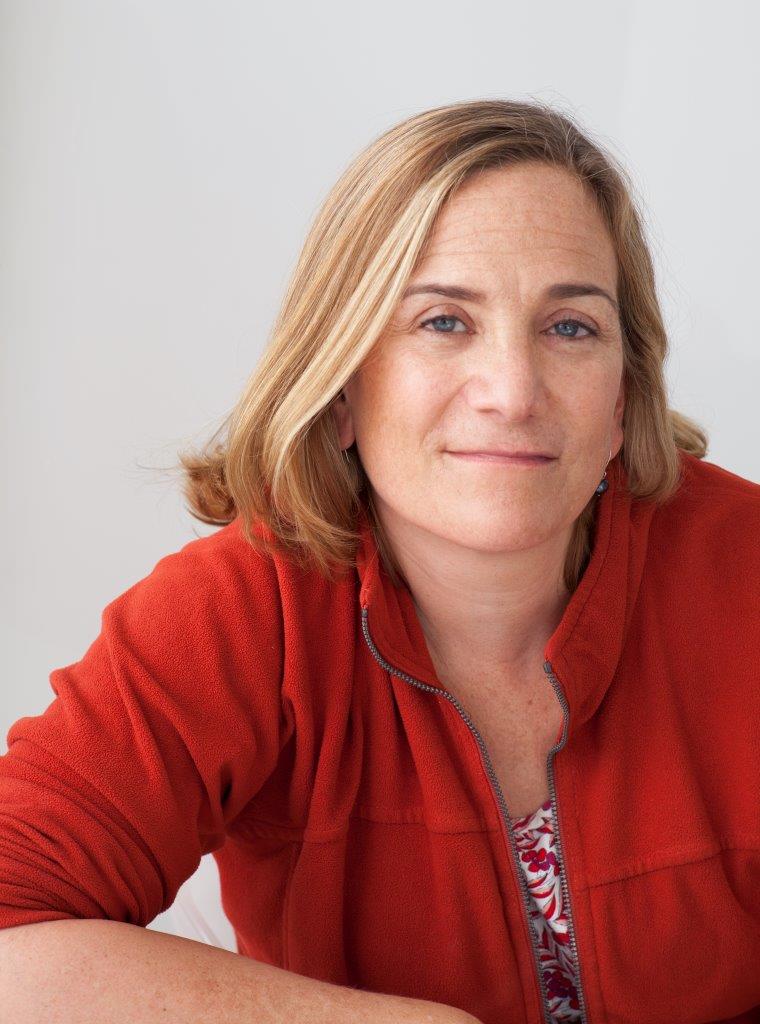 Midwestern Gothic staffer Kristina Perkins talked with author Tracy Chevalier about At the Edge of the Orchard, writing in a historical context, being an immigrant in England, and more.
Midwestern Gothic staffer Kristina Perkins talked with author Tracy Chevalier about At the Edge of the Orchard, writing in a historical context, being an immigrant in England, and more.
**
Kristina Perkins: What is your connection to the Midwest?
Tracy Chevalier: I am an East Coast gal – grew up in Washington DC – but I went to Oberlin College in Ohio in the 1980s, and that seems to have found its way into my writing. Possibly that’s because since graduating from Oberlin I’ve lived in England, so when writing about the America I know, I have naturally reached out to Ohio.
KP: Much of your newest novel, At the Edge of the Orchard, is set in Ohio’s Black Swamp during the early 1800s — a landscape filled with tension, disease, and poverty. How do you imagine the relationship between the novel’s depiction of life in 1800s Ohio and your understanding of contemporary Midwestern values?
TC: In many ways the Midwest and 21st-century Americans are very very different from our ancestors who settled the country. Pioneers had hard lives, whether in Ohio or Missouri or California or Florida. Grueling lives spent trying to feed and clothe and shelter themselves. Most of us now don’t live off the land, almost entirely self-sufficient. We don’t spend most of our time outdoors; we’re warm and dry and ridiculously well fed and well rested, and we have plenty of time for leisure. In some ways Ohioan lives in the early 1800s are almost unrecognizable from ours. But humans are humans, and certain traits and values remain in the Midwest. Ohio in the 1800s was often not the destination, but the gateway to a destination, i.e. to the West. Yes, people settled. But lots passed through from the East Coast on their way to the wide open freedom of the West. Ohio was not and definitely is not like the East Coast. While it is no longer so transient as it was in the 19th century, it (and I think the rest of the Midwest) also does not shout loudly about itself the way the coasts do. It is more solid, more realistic maybe. It makes perfect sense to me that Ohio has always been seen as the state a presidential candidate has to win to be elected – though perhaps not 2016, an election where all bets were off!
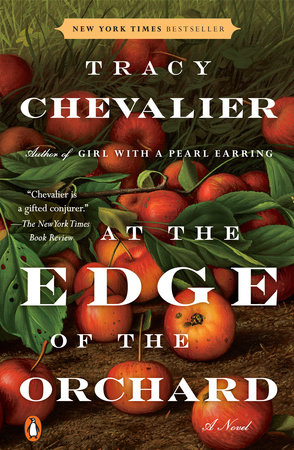
KP: At The Edge of the Orchard is your eighth historical fiction novel. As a writer, what is most compelling about historical fiction? What are the limitations of the genre, and what strategies do you use to grapple with these challenges? How do you navigate the space between teaching history and telling a story set in a particular historical moment?
TC: I kind of fell into writing historical fiction, then discovered I preferred it because it allows me to get away from myself and my daily life. It also stretches me, makes me think about the world and my place in it in much broader terms. Of course it does have its limitations. It requires a huge amount of research to get the “feel” of the period right. But I love the research, as it gives me ideas as well as the time during which to develop the story and characters. It’s crucial though not to think that I am educating people about a certain people. Story and entertainment come first; the historical background is just that – background. Sometimes I’ll discover some juicy historical detail but can’t use it because it doesn’t add to the story I’m telling. It’s no good showing off all the research; I just have to absorb it so that the reader feels confident in me knowing what I’m talking about, even if I don’t spell it out. It’s a balancing act.
KP: In a recent piece in The Telegraph, you note that “you need to be an outsider to write.” For you, what is it about being an “outsider” that lends itself to writing? How might your own mobility — namely, your migration from the United States to England — relate to the sort of westward expansion described in At the Edge of the Orchard?
TC: I have lived in England as a foreigner all my adult life, and that has set me somewhat on the sidelines of the culture and society here. From there, however, I have a perspective that maybe makes me a little more objective than I might be if I were English, or were living in the US. When you’re in the middle of something, it’s often hard to gain any perspective on it. On the sidelines, you see things differently. With At the Edge of the Orchard, I played with that outsider status and mobility a bit with the characters, who are immigrants themselves. My being an immigrant in England made it easier to write about immigrants in the US, and that decide to move to find a better or different life. I understand that feeling, as well as the accompanying disappointment when you realize finally that moving doesn’t necessarily get you away from your problems – they often follow you, because they are in you.
KP: You’ve openly discussed the path of your career as a writer, describing the progression from bookish child to uncertain teenager to best-selling author. Given this experience, what advice would you offer to young writers seeking first-time publication? What might you say to teenagers who question their ability to become authors?
TC: I have two pieces of advice for teenagers – and everyone, really – who are looking to write and publish. 1. Only pursue it if you love books. I mean, REALLY love books. You should be always reading a book, always in bookstores, always reading reviews and book blogs. You should always be wanting books as presents. You should always be asking people what they’re reading rather than what they’re watching or listening to. You should be obsessed. Because if you aren’t, then you won’t have the drive to write. That point may seem obvious, but I’m amazed at the number of people I meet who say they’re writing a book, but when I ask them what they’re reading at the moment, say, “Oh, nothing, I don’t have time.” What?! That’s like a musician not listening to music, an actor not going to the theater or the movies. It makes no sense. 2. That old adage that writing is 10% inspiration, 90% perspiration? Totally true. If you want to write, you have to sit down and do it, day after day, confront the blank page and fill it. It’s hard, it’s boring sometimes, and it goes on and on. You have to do it anyway.
**
Tracy Chevalier was born in October 1962 and grew up in Washington, DC, moving to England after graduating with a BA in English from Oberlin College (Ohio). For several years she worked as a reference book editor, while writing short stories in her spare time. In 1993 she quit to do an MA in Creative Writing from the University of East Anglia (Norwich, England). Afterwards she juggled freelance editing with writing until eventually she was able to write full-time.
Tracy lives in London with her English husband and son. She’s written 8 novels and edited 2 short story collections. Her second novel, Girl with a Pearl Earring, sold 5 million copies worldwide and was made into a film starring Colin Firth and Scarlett Johansson. Apart from writing, she’s curated three shows in art galleries/museums.
May 25th, 2017 |
We’re so thrilled to say that We Could’ve Been Happy Here by Keith Lesmeister just got a stellar review from Sabotage Reviews, and Keith was interviewed by Fiction Writers Review!
Here’s what Terry Melia from Sabotage Reviews had to say about the MG Press title:
“These are deceptively quiet stories that display a talent for wit and lightness sprinkled alongside a heap of angst…I found all of them a mixture of brutal and a laugh out loud. Delving each chapter and new character was as comfortable as an old pair of slippers. This is an author to watch out for.”
Read the full review here.
Plus, check out Keith’s interview with Barrett Bowlin of Fiction Writers Review where he talks writing schedules, “raw, naked vulnerability” and more!
Here’s a bit of what FWR had to say on Keith:
“If you’ve been reading any number of literary magazines the past five years, you’ve no doubt come across some stunning work by Keith Lesmeister…Lesmeister has been exceptionally busy writing, publishing, and becoming an author whose impressive body of work creeps up on you like an early autumn frost.”
Read the full interview here.
Buy your copy of We Could’ve Been Happy Here now!
May 24th, 2017 |
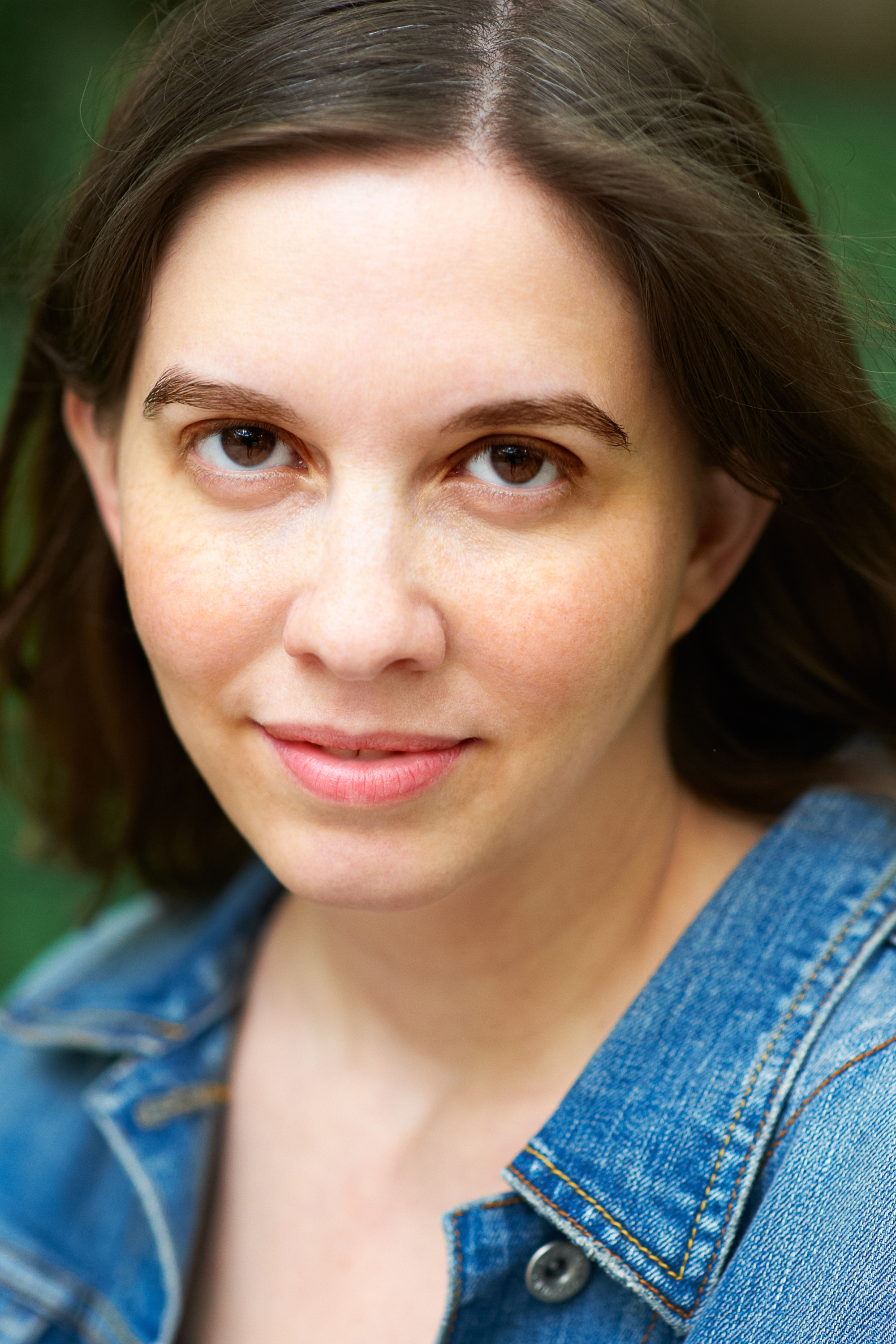 Midwestern Gothic staffer Megan Valley talked with author Abby Geni about her novel The Lightkeepers, the power of an intriguing setting, novels versus short stories, and more.
Midwestern Gothic staffer Megan Valley talked with author Abby Geni about her novel The Lightkeepers, the power of an intriguing setting, novels versus short stories, and more.
**
Megan Valley: What’s your connection to the Midwest?
Abby Geni: I’m a Midwestern girl, born and raised. I grew up a stone’s throw from Lake Michigan, and now I live less than a mile from my childhood home. The Midwest is my heart.
MV: At Midwestern Gothic, we’re very concerned with the influence of setting. How does the island setting of your debut novel, The Lightkeepers, shape the story?
AG: The setting is vital to The Lightkeepers. The book takes place on the Farallon Islands, which are a real chain of tiny islets off the coast of California. The archipelago is a nexus of marine life – whales, sharks, seabirds, octopuses – and an incredibly dangerous place for humans. I fictionalized the place a little bit, but mostly I stayed true to the details, which are more fascinating than anything I could imagine. For instance, there’s no pier on the Farallon Islands; the sea is too wild. People have to be transported to shore by crane. The stony ground is eighty million years old and falling apart, so it’s easy to lose your footing, fall, and hurt yourself. There’s near-constant fog and rain. There are malevolent gulls and lurking great white sharks. The islands are also the most rodent-dense location in the world, overrun by mice. In short, the setting of The Lightkeepers is essential to the menace and wildness of the story.
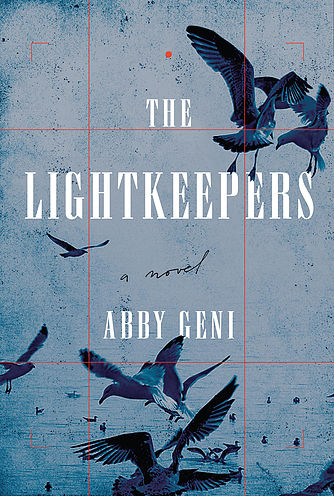
MV: The last time we interviewed you, it was for your debut short story collection, The Last Animal. How has your writing changed since then?
AG: I think I’ve always been a novelist at heart. When I was younger, I felt that I was practicing my craft, writing shorter pieces as I waited to become a stronger writer, to get older and wiser as a human being, searching for a story that was big and strange and potent enough to span an entire book. In The Last Animal, I organized the stories around a central theme – the relationship between humans and nature – to connect them to one another. Even then, I was thinking about how to structure a whole book, rather than individual pieces: how the stories played off one another, how together they told a greater story than themselves. Now that I’ve begun writing novels, I can’t imagine going back to short stories. I’m a marathoner, not a sprinter.
MV: In many ways, The Lightkeepers seems similar to traditional mystery novels. How does this structure work with the theme of how humans interact with nature?
AG: The joy of a good mystery comes from the human tendency to see patterns everywhere. A mystery, when it’s done right, is an irresistible puzzle box. You collect the clues, identify and discard meaningless information, make sense of all the disparate shards, and try to put them together into a whole. You want the solution, but you also want the process itself, the wonderful untangling.
Human beings look for patterns in everything. We see faces in tree bark and shapes in clouds and images in constellations. Nature is inherently chaotic in a way that’s hard for the human mind to deal with. Nature is both scary and wondrous to us in part because it’s so disorderly – no straight lines, no grids, no rules, no logic. It’s all sprawl and growth and tumble.
In The Lightkeepers, I was interested in what a traditional mystery plot would look like in a wild, chaotic setting. Miranda, the main character, is trying to put the pieces together – a suspicious death, a limited set of suspects, a plethora of motives – but she’s stymied by the danger and disorder of the Farallon Islands, the crumbling stone and wild sea and bloodthirsty gulls. Is she seeing patterns that aren’t there? Is she trying to impose a human story on a wild, un-storied place?
MV: What do you read in between your writing projects?
AG: While I’m writing, I find it hard to read fiction, since I’m creating fiction and I don’t want another author’s mind and story getting knotted up with mine. So I read a lot of nonfiction and genre fiction while I’m actively creating a new book. In between projects, I read all the fiction I can get my hands on. My recent favorites have been The Houseguest by Kim Brooks, The Nobodies Album by Carolyn Pankhurst, and Stories for Wartime by Rebecca Makkai.
MV: The main character in The Lightkeepers is named Miranda and she’s stuck on an island. This and other aspects of the novel, like her relationship with Galen, are very reminiscent of Shakespeare’s The Tempest. Which thematic aspects of of the play were you trying to recall?
AG: I’ve always loved The Tempest, so I’m delighted whenever readers find echoes between it and The Lightkeepers. To my mind, Galen is definitely reminiscent of Prospero, an omniscient, all-powerful deity with a host of magical creatures under his thrall. There’s also the character of Caliban, the fish-monster who lurks around the edges of the play. It’s suggested in The Tempest that Caliban has assaulted Miranda sometime in the past, which is why he’s fallen out of favor with Prospero when the play begins. I remember reading Shakespeare’s The Tempest and being curious about Miranda’s thought processes and mental architecture. In the play, she’s so wide-eyed, so oddly innocent, yet she’s been through terrible things and lived an extraordinary life. Many aspects of her character were in my mind as I was writing The Lightkeepers.
MV: How do you approach writing a novel differently from writing a collection of stories?
AG: A mentor of mine, Dan Chaon, once told me that the vast proportion of novels in the world could have been written as short stories, and that if you have the possibility of writing a short story instead of a novel, then it’s your responsibility to do that.
When I wrote The Last Animal, people would often tell me that they thought certain stories from the collection could have been made into novels. But I knew that wasn’t true, because the stories weren’t big enough. Short stories are all beginning and end. Novels are mostly middle. Writing a novel is about finding a story with enough middle to span a whole book.
MV: What’s next for you?
AG: I’ve been working on a new novel, and I’m about to embark on a major revision with my wonderful editor, Dan Smetanka. I love the editing process, so I couldn’t be happier. The book is called Zoomania, and it should be out in the spring of 2018.
**
Abby Geni is a graduate of Oberlin College and the Iowa Writers’ Workshop as well as a recipient of an Iowa Fellowship. Her work won first place in the Glimmer Train Fiction Open and was listed in The Best American Short Stories, 2010 and 2013. Her collection of short stories, The Last Animal (Counterpoint Press), was a 2014 Orion Book Prize Finalist for Fiction, and her debut novel, The Lightkeepers (Counterpoint Press), was released in 2016 to much acclaim. The Lightkeepers was chosen as a Spring 2016 Discover Great New Writers Selection at Barnes & Noble, was the Mysterious Bookshop’s First Mystery Pick for February 2016, was long-listed for the 2016 Center for Fiction First Novel Prize, and was chosen by Chicago Magazine as Best Breakout Novel. Abby lives in Evanston, IL, with her husband and young son.
May 18th, 2017 |
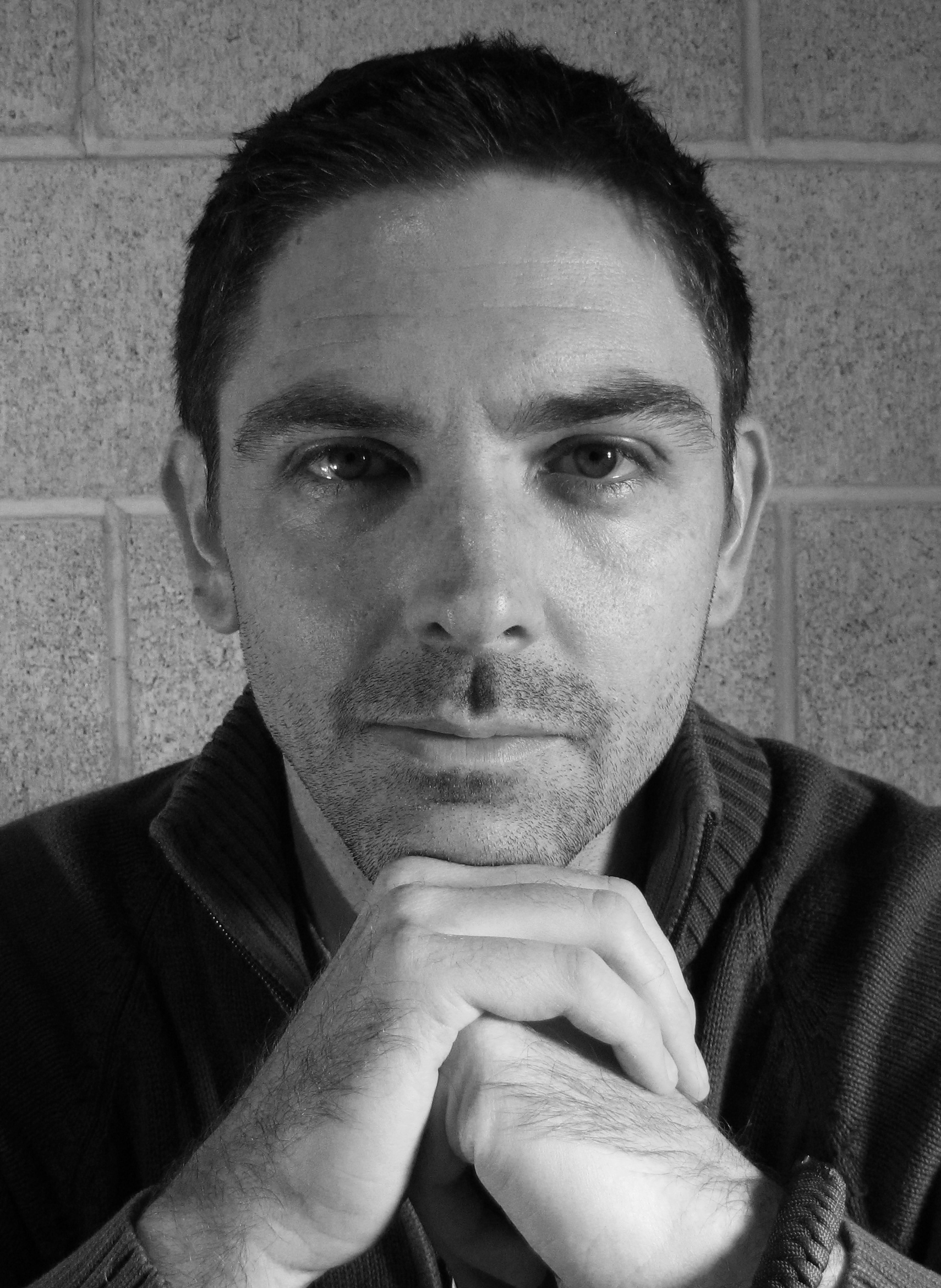 Midwestern Gothic staffer Audrey Meyers talked with author Lee L. Krecklow about his book The Expanse Between, atmospheric research, growing from failure, and more.
Midwestern Gothic staffer Audrey Meyers talked with author Lee L. Krecklow about his book The Expanse Between, atmospheric research, growing from failure, and more.
**
Audrey Meyers: What is your connection to the Midwest?
Lee L. Krecklow: I’ve lived my whole life in Wisconsin, and while I’ve always kept residence near the city of Milwaukee, I’ve spent enough time in rural areas to feel that connection, as well. Growing up, my parents owned owned a cabin on a smallish lake in central Wisconsin, where I spent time in forests and fishing and hunting. Later, after the cabin was gone, I took to camping and backpacking, exercising the skills of quiet and stillness I learned as a child. I point those things out because I feel that being connected to the region requires a balanced understanding of the whole landscape.
AM: How has living in Milwaukee impacted your writing style? What specifically about Milwaukee inspires you to write?
LLK: Having lived here my whole life, I understand the connection to the city, to the region, but the impact is difficult for me to understand. In my mind, it’s like asking a fish how it’s influenced by living in water; impossible to comprehend without knowing an alternative. That said, I see Milwaukee as an encouraging, fertile launching pad for artists of all kinds. There’s a rich music scene, so many amazing painters and a network of small galleries, a film and theatre scene. But it’s a difficult place to thrive as an artist. Filmmakers and musicians want to be in LA. Painters and playwrights want to be in New York. For some, Milwaukee is between nowhere and somewhere, and that notion, the influence of that, is writ large in The Expanse Between. None of that is said to deprecate the city. It’s a lively artistic community. But sometimes, to be known is to be elsewhere.
AM: In The Expanse Between, a writer is propelled into revisiting the work of writing fiction because of events in his reality. How did you come up with this storyline?
LLK: The seed from which this story grew was the idea that “fictional” forms of narrative are often not very “fictional,” and reality-based, “non-fiction” forms–be they in literature or documentary or television series–are not always true to life. We draw blurry lines when defining what we consume, sometimes without enough consideration, or with consideration that serves our own artistic purpose. How much credit does a creative artist deserve when he or she borrows heavily from reality? How does what we borrow impact the subject itself, or influence people’s beliefs about the subject? These are the ideas I was exploring.
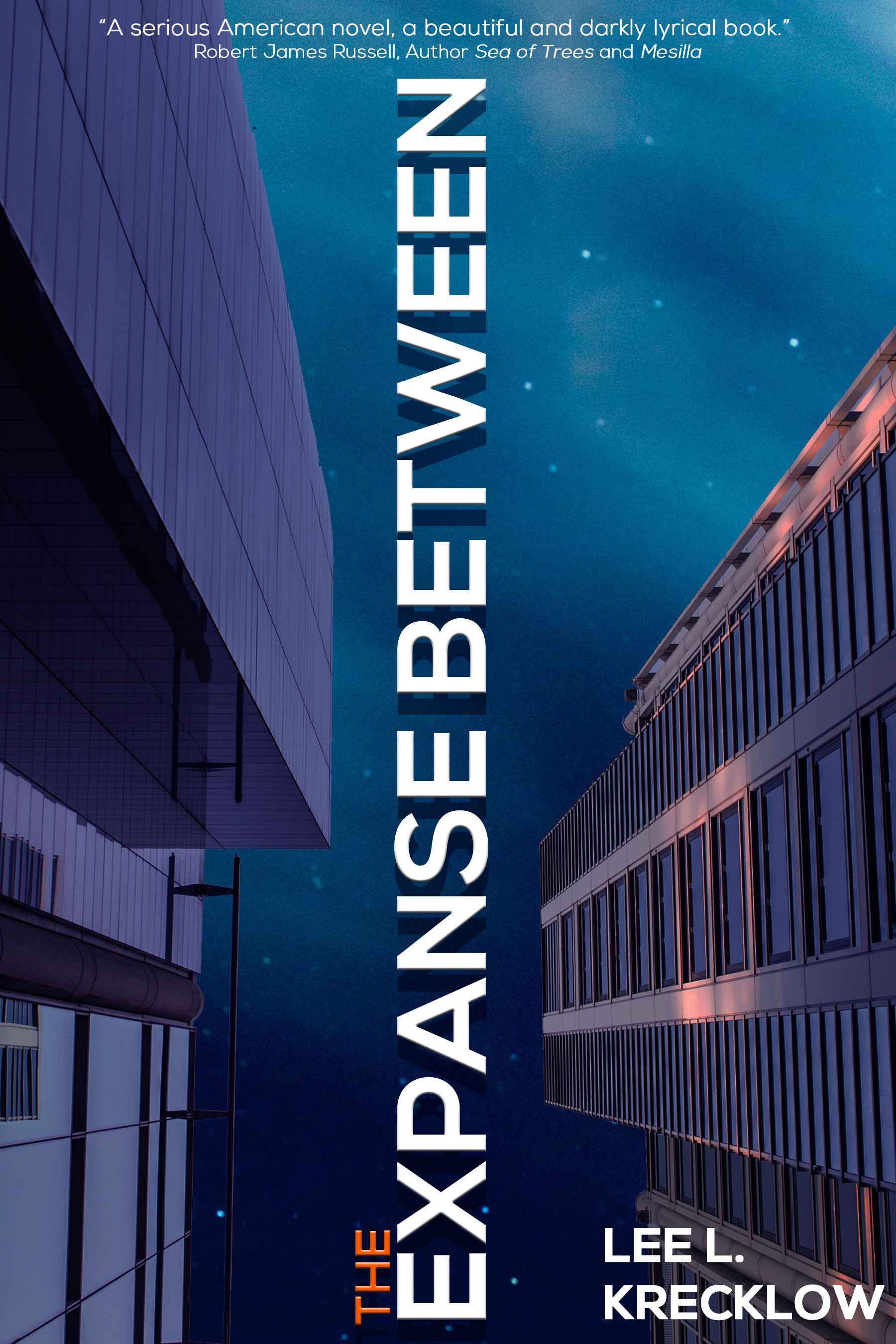
AM: What genre do you think The Expanse Between fits into best? Why?
LLK: One of the reasons we apply genre labels is to define what our readership ought to be, and obviously I’d love as wide a readership as possible. However, you also want people to be satisfied by what they read, so you can’t label so broadly. The genre I settled on was “literary noir.” This is a literary work at its core. Its alternating perspectives are frequently internal, and I’d like to think the language warrants an association with other mainly literary works. However, there’s no doubt the narrative is driven by psychological elements innate to suspense or noir. There is voyeurism. There is darkness. There are threats to safety. The Expanse Between is influenced by those types of works, as well.
AM: Did you need to do any research for The Expanse Between? If so, what kind of research helped you contextualize the story?
LLK: Not explicit, formal research, but certainly atmospheric research, if that’s a thing. Many of the locations in the book have real-world counterparts, and I’d go to those places and sit and just journal my emotions while I was there. There’s a bookstore in the novel, and I used to visit its model in downtown Milwaukee and spend an hour just sitting and looking and smelling and hearing. I went to the beach that the characters visit and cataloged the same.
AM: What are some of your techniques as a writer to create suspense for your reader?
LLK: I love blind spots, both for readers and characters. We’re most intrigued by the things we can’t see. One of the techniques I use to achieve this is an intimate but alternating third person perspective. The reader has close, internal perspectives from each of the players, but never at the same time, so one doesn’t have access to certain characters’ thoughts or emotions during key moments. The reverse is that the reader has certain pieces of information that the characters don’t, information which might help the characters or their relationships. Hopefully that creates tension and urgency. I’m also not above allowing some actions to take place off the page, so that a reader needs to keep reading into the future in order to understand what took place in the past. That’s just another form of blind spot.
AM: How do you “get to know” your characters when writing about them? In other words, how do you make your characters feel real to you?
LLK: They all need to experience some emotions that I can connect with. I need to understand why everyone does what they do; that’s the only way to own them. I’m an excessively empathetic person, one who can see both sides of most arguments, so this isn’t usually an issue for me. That doesn’t mean I’ve experienced or agree with everything my characters do. Far from it. But I can extrapolate my own experiences, push them further emotionally, in order to understand the people I write. A line I’ve used conversationally: I’ve never been punched in the face, but I’ve accidentally walked into a wall, so it’s not a stretch for me to understand taking an unexpected blow to the head.
AM: What did you learn about yourself as a writer while creating The Expanse Between?
LLK: Oh my, so much! This story started as a screenplay, back while I was a film criticism student, roughly 17 years ago. So over the course of nearly two decades, during which I wrote and directed two short films, published more than a dozen short stories, completed a different, failed novel, and nearly completed what I hope will be a successful next novel, I couldn’t help but learn. I learned that I can fail, very easily, and that I should look for the signs of a failed projected from those around me whom I trust. I learned that if I fail, it’s okay, that I’ll take that failure and use it to turn the next project into something better. And I learned that anyone trying to create anything is your friend, and you should foster those friendships and learn from the people around you. They are trying to make their way in the same world that you are.
AM: How do you push yourself to grow as a writer? For example, do you explore new genres, try new styles, or pursue complex characters, etc.?
LLK: To grow as a writer I try to grow as a reader. There’s no shortage of advice out there telling you the same thing, that writers must read, but really, it’s true. I like to try new things outside my comfort zone. Often, what I try is not for me. But the worst thing that happens is that I learn why I don’t like it, and I reinforce what I do like. The best thing that happens is I discover a new nuance in my voice, something inside that I wanted to express, but which I wasn’t certain how to channel, and now here is a writer doing that thing, and suddenly, by reading them, I’ve learned and grown.
AM: In The Expanse Between, the main character Thomas is motivated to write because of an external catalyst. What drives you to write?
LLK: Beautiful question. Thomas is mainly driven by ego. Yes, the things he sees in the book do motivate him, put his purpose is recognition. Validation. I’d love to believe that I’m the opposite of that, but I can’t be certain. I think about the years during which I was not being published, and I still worked at it. Not writing, not performing the act itself, meant not feeling balanced, meant a brand of depression. And while I felt unbalanced, I could cure myself by writing, but it was never work that would be published. So I was writing for the sake of the process. And that, I hope, is the difference between me and Thomas. That regardless of readership, I am a writer. It’s something I do independent of validation. However, there’s enough ego inside of me to know that I want others to share what it is that I’m feeling, and that a piece that’s published is far more satisfying than a piece that sits in a drawer.
AM: What’s next for you?
LLK: I’m working on a novel titled An Irrelevance of Butterflies. It’s a bigger novel, inspired by a number of my short stories, and I’m very excited about it. Additionally, short fiction continues to call to me. I love exploring ideas in short form, and I’m routinely looking for appropriate homes for that work.
**
Lee L. Krecklow is the author of the novel The Expanse Between (Winter Goose Publishing, 2017). He was the winner of the 2016 South Million Writers Award for his story “The Son of Summer and Eli” (The Tishman Review 1.2), and his work has recently appeared in Eclectica, Oxford Magazine, Storychord, Midwestern Gothic and others. Find more by visiting www.leelkrecklow.com.
May 12th, 2017 |
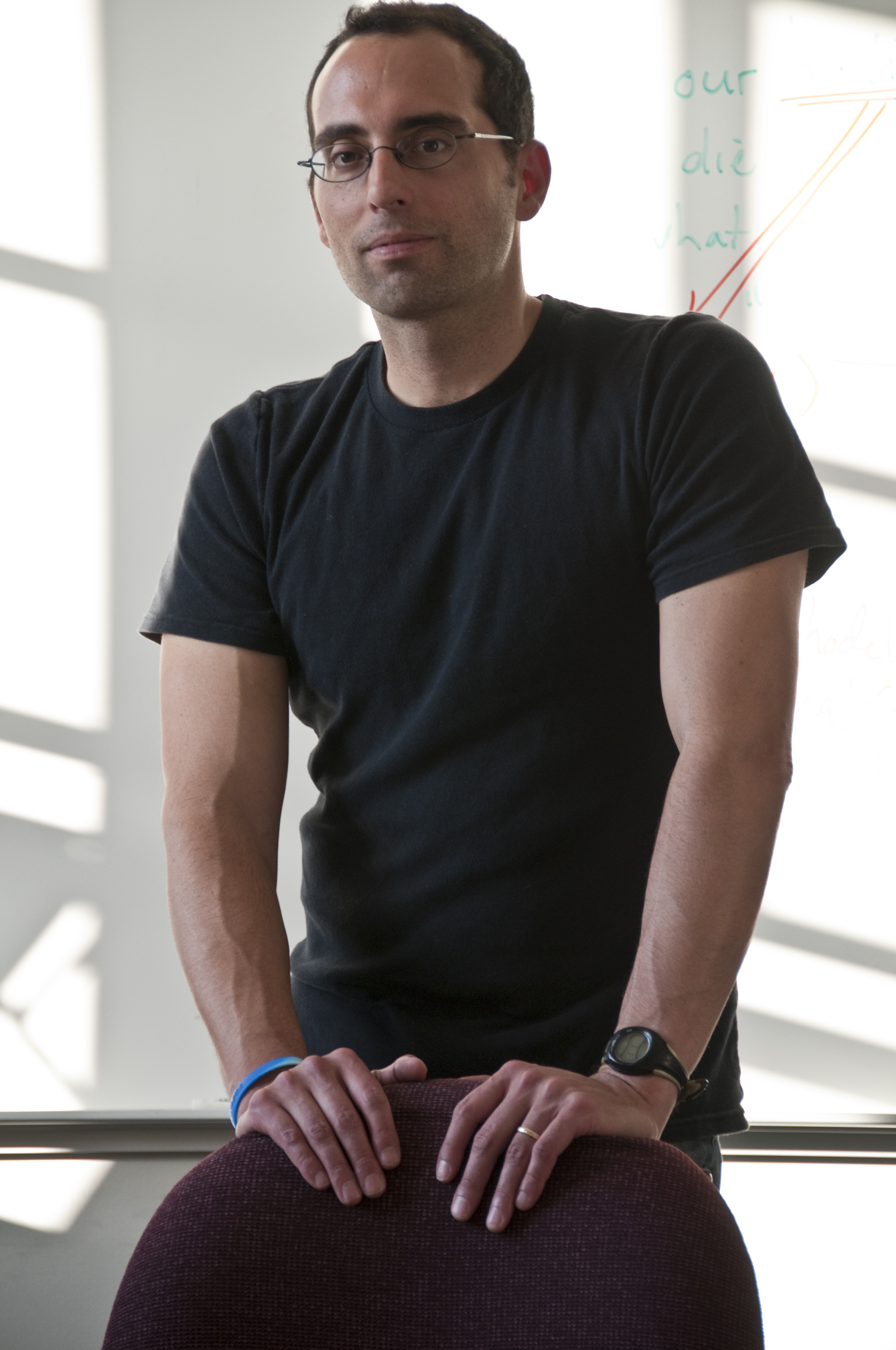 Midwestern Gothic staffer Megan Valley talked with poet Philip Metres about Sand Opera, creating a space for voices, a list of invaluable advice for writers, and more.
Midwestern Gothic staffer Megan Valley talked with poet Philip Metres about Sand Opera, creating a space for voices, a list of invaluable advice for writers, and more.
**
Megan Valley: What’s your connection to the Midwest?
Philip Metres: I grew up in the leafy northern suburbs of Chicago, but I didn’t feel Midwestern until I went off to college on the East Coast and felt distinctly out of place. I remember hearing Uncle Tupelo’s No Depression on our college radio station, and it felt like home. I think of avant-garde poet Dmitry Prigov’s poem:
I’d be Catullus in Japan
And in Rome, Hokusai
And in Russia, I’m the same guy
Who would have been
Catullus in Japan
And in Rome, Hokusai.
I suppose I’ve always felt a little out of place.
A few years later, I spent six years in Bloomington, Indiana, pursuing my Ph.D. and M.F.A. The past fifteen years I’ve been teaching in Cleveland, Ohio. Three different MidWests—some partly gothic; occasionally, when I drive by the abandoned houses in certain neighborhoods of postindustrial Cleveland, I feel in the presence of ghosts. The killers were dressed in suits and wielded redlines, racially-selective loans, and variable interest rate mortgages.
MV: Your most recent poetry collection, Sand Opera, received Honorable Mention for the 2016 Arab American Book Award. What part of the book are you most proud of?
PM: It’s a difficult question to answer, because I’m grateful that the book exists, that the poems came to me and wrestled me into existence. The book wrote me as much as I wrote the book. I’m grateful, too, that a good number people have read and reviewed it, and that my friend John Morris is now in the final stages of editing a Teacher’s Resource Book for Sand Opera, which will enable high school and college teachers to keep teaching the book, even though that war is more or less over (though the wars are never over). I wanted to create a space for the Iraqi (and American) voices that weren’t being heard in the mass media narrative of the war. I hope I honored them, my Iraqi friends, and those whose words I read through testimonies of the war.
MV: What do you wish you had known before you began writing?
PM: I’ve written a half-dozen clichés and erased them in trying to answer this question. The advice I tend to give to my students about writing poetry is this:
1. Mightier than the sword is the pen. Carry it always, and something to write on.
2. Explore the possible. Read and steal greedily from “the mind of the past” (Emerson).
3. Get in the mood: find solitude and quiet the mind. The world inspires us, but also distracts us. It is both source and obstacle. Love it the way you love any dangerous friend.
4. Imagine (or hear) a particular voice in a situation and let the voice speak through you. Steven Wright: “I am the receptionist of my brain.” Listen to contrariness.
5. Handwrite without erasing OR don’t use the delete key: go forward. Flow downstream. (This is for the first draft only!)
6. Move through image, not idea. “Show, don’t tell.”
7. Listen to the sounds of words; let the music move, but don’t be bound by rhyme.
8. Experiment with form: lineation and stanzas should enhance the meaning.
9. Flip the script. Surprise yourself. Discover where you are going and let the ending find itself. Explore “the turn”— where the poem surprises by reversing flow.
10. Put it away at least overnight; let the inspiration cool off. What is durable will remain mysterious.
11. Show it to others without explanation and listen (really listen!) to their feedback.
12. Revision is where you show your courage and you let go your ego. Revise toward where the poem is going, not what you wanted it to be.
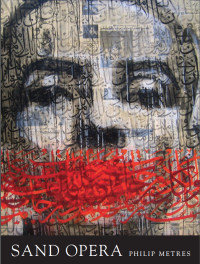
MV: Sand Opera is built off of the position of Arab Americans being “named but unheard.” How can poetry confront that problem?
PM: Trump (whom I hope will be a mere blip in our national story) has emboldened those who see Americanness through a lens of imperial whiteness. People of color, undocumented workers, and women have been derided or endangered by the rise of this reactionary fervor. So much of what’s happening is demonizing. Writing poetry can be a site of listening to one’s own voice as it emerges on the page, surprising its writer with its otherness and self-ness all at once—just as reading poetry can be, as we explore the mystery of what it means to be human. Poetry is one of many art-technologies involved in this process, but it’s the one that’s chosen me.
MV: You also translate Russian poetry. What aspects of Russian poetry have been the most influential on your own?
PM: I went to Russia after college on a fellowship to study “Contemporary Russian Poetry and Its Relationship to Historical Change,” partly because I wanted to learn about Russia (the so-called “Evil Empire”) and its legendary poets, but partly because I wanted to learn how to be a poet myself.
Translating and meeting those poets completely transformed my idea of poetry and its relationship to the political sphere—I became less interested in poetry as a political weapon and more interested in its alternate way of being, both part of but also beyond politics, or rather, beneath all politics. The primal ground of being. Translating poets like Sergey Gandlevsky and Lev Rubinstein and Arseny Tarkovsky became an education in poetry’s possibilities. I know the poets I’ve translated better than any other poets because I’ve lived inside those sonic language architectures longer than in any other poem.
MV: You’ve said in a past interview that American culture is “addicted to the war story.” How does Sand Opera approach and treat that “addiction?”
PM: Our culture seems almost starving to hear soldiers’ voices. On the one hand, I understand it; the soldier is one who has faced death directly, and lived to tell about it, in the service of country. On the other hand, I find it ominous and even dangerous how these voices colonize our discourse about what war (and what other countries and people) look like. Nearly always, in the traditional war story, the countries and peoples end up as stage props in the story of a soldier coming of age. War should not be a rite of passage for our youth; it should be a last resort when our very existence is at stake. The Iraq War was not merely a tragedy; it was a criminal imperial decision that led to further criminality, mass death, and, ultimately, ISIS. My approach in Sand Opera was to listen to Iraqi voices, and all those whom that war affected, as well as to explore the operating procedures of the larger War on Terror: extraordinary rendition, torture, Guantanamo Prison, etc.
MV: What would you be doing if you weren’t a writer?
PM: I’m already living many lives at once, as we all do: husband, father, son, teacher, church-goer, musician, basketball coach, etc., etc. Other possible vocations? Diplomat and therapist and journalist all come to mind. I’m interested in peace-building and peacemaking, with ourselves and with others.
MV: You’ve said Sand Opera had been in the works for about a decade before it was published. How did the collection change in that time, especially as much of the poetry addresses political situations that were ongoing during that time?
PM: It moved from being a book attempting to intervene on an ongoing conflict to one that needed to last for the ages. Dealing with that fact only made the book better. Only time will tell if it has been successful. Perhaps it is the humus from which other better poems will emerge. I’m grateful, for example, that Solmaz Sharif found the arias helpful in the process of writing her first book LOOK, which was a finalist for the National Book Award.
MV: What’s next for you?
PM: I’m working on a handful of projects, which alternate depending on my mood: The Flaming Hair of Fate (a memoir about living in Russia), Shrapnel Maps (poems on the Israeli-Palestinian conflict), The Sound of Listening (essays on poetry), a book of translations, and a book of interviews with Russian poets. I love getting lost in words.
**
Philip Metres is the author of Pictures at an Exhibition (2016), Sand Opera (2015), I Burned at the Feast: Selected Poems of Arseny Tarkovsky (2015), To See the Earth (2008), and others. His work has garnered a Lannan fellowship, two NEAs, the Hunt Prize for Excellence in Journalism, Arts & Letters, two Arab American Book Awards, the Cleveland Arts Prize and a PEN/Heim Translation Fund grant. He is professor of English at John Carroll University in Cleveland.
May 11th, 2017 |
 Midwestern Gothic staffer Audrey Meyers talked with author Bill Beverly about his novel Dodgers, the inescapability of weather, dreaming of L.A., and more.
Midwestern Gothic staffer Audrey Meyers talked with author Bill Beverly about his novel Dodgers, the inescapability of weather, dreaming of L.A., and more.
 Midwestern Gothic staffer Megan Valley talked with poet Sjohnna McCray about his collection Rapture, dreaming of being a dance DJ, being raised by a Vietnam vet, and more.
Midwestern Gothic staffer Megan Valley talked with poet Sjohnna McCray about his collection Rapture, dreaming of being a dance DJ, being raised by a Vietnam vet, and more.
 Make sure to check out another interview with Keith Lesmeister, now up on Michigan Quarterly Review‘s blog site! Keith discusses
Make sure to check out another interview with Keith Lesmeister, now up on Michigan Quarterly Review‘s blog site! Keith discusses 
 Midwestern Gothic staffer Kristina Perkins talked with author Thomas Mullen about his novel Darktown, crime in history and present time, the choices a writer must make, and more.
Midwestern Gothic staffer Kristina Perkins talked with author Thomas Mullen about his novel Darktown, crime in history and present time, the choices a writer must make, and more.
 Midwestern Gothic staffer Kristina Perkins talked with author Tracy Chevalier about At the Edge of the Orchard, writing in a historical context, being an immigrant in England, and more.
Midwestern Gothic staffer Kristina Perkins talked with author Tracy Chevalier about At the Edge of the Orchard, writing in a historical context, being an immigrant in England, and more.
 Midwestern Gothic staffer Megan Valley talked with author Abby Geni about her novel The Lightkeepers, the power of an intriguing setting, novels versus short stories, and more.
Midwestern Gothic staffer Megan Valley talked with author Abby Geni about her novel The Lightkeepers, the power of an intriguing setting, novels versus short stories, and more.
 Midwestern Gothic staffer Audrey Meyers talked with author Lee L. Krecklow about his book The Expanse Between, atmospheric research, growing from failure, and more.
Midwestern Gothic staffer Audrey Meyers talked with author Lee L. Krecklow about his book The Expanse Between, atmospheric research, growing from failure, and more.
 Midwestern Gothic staffer Megan Valley talked with poet Philip Metres about Sand Opera, creating a space for voices, a list of invaluable advice for writers, and more.
Midwestern Gothic staffer Megan Valley talked with poet Philip Metres about Sand Opera, creating a space for voices, a list of invaluable advice for writers, and more.




